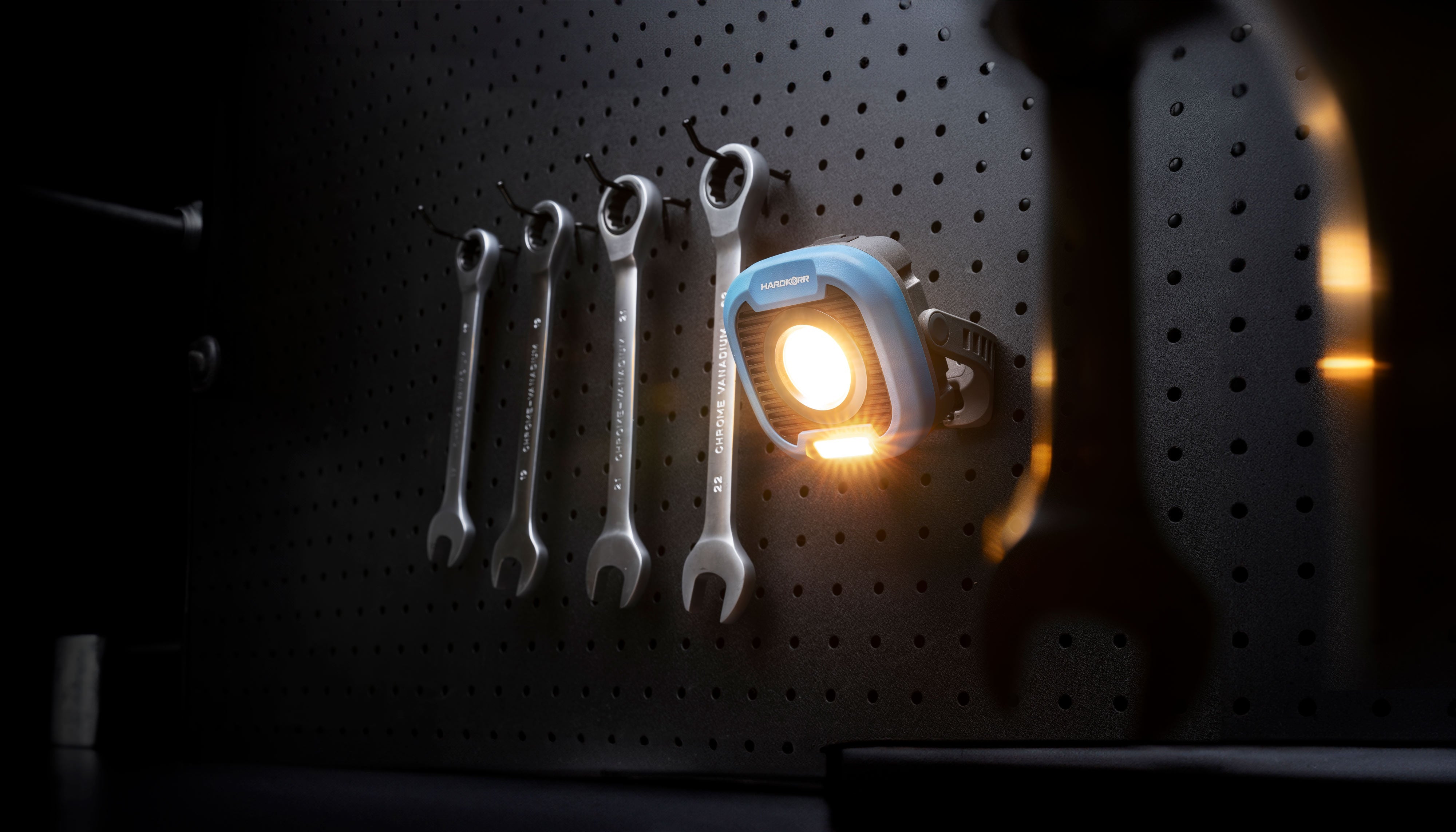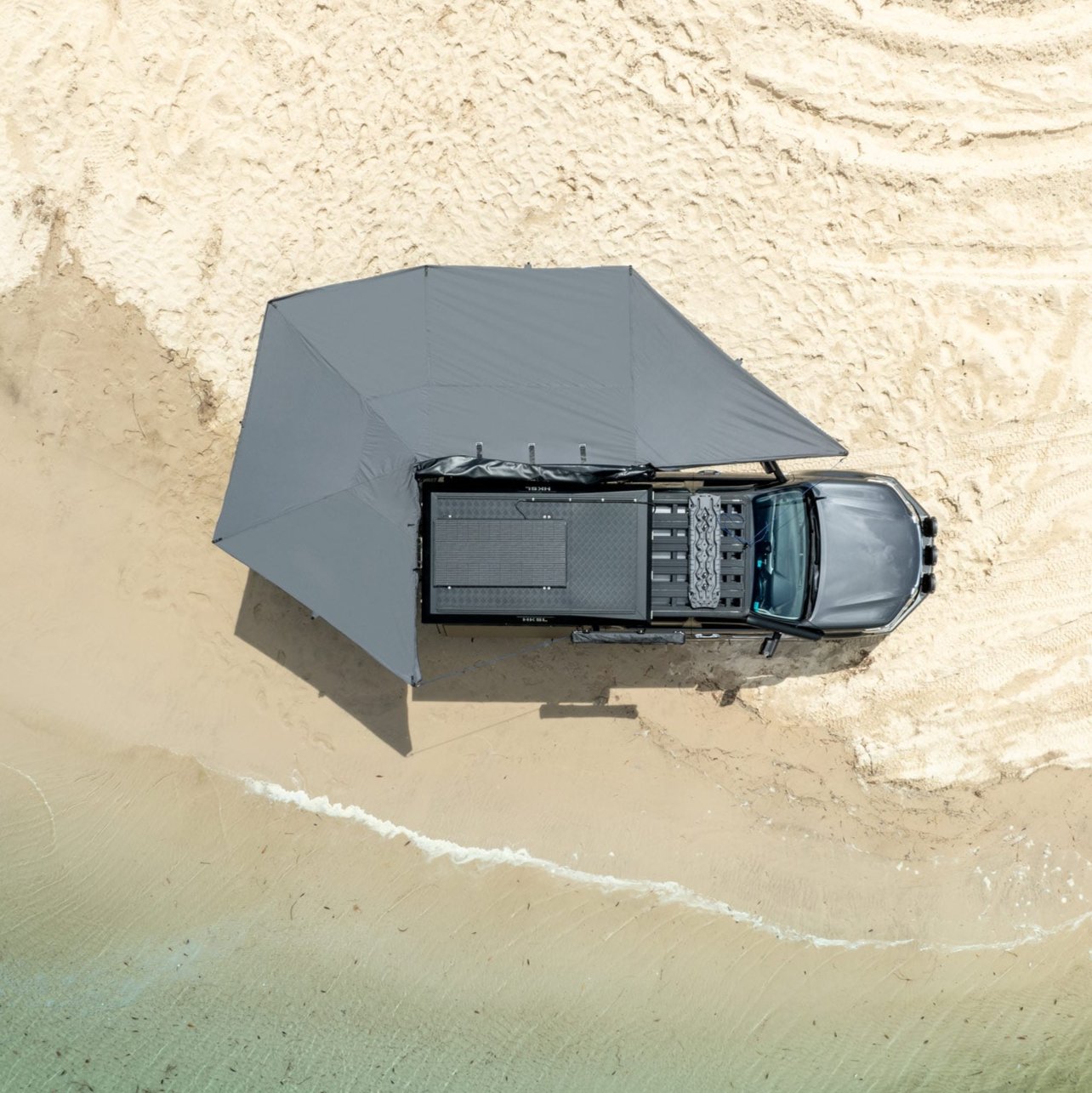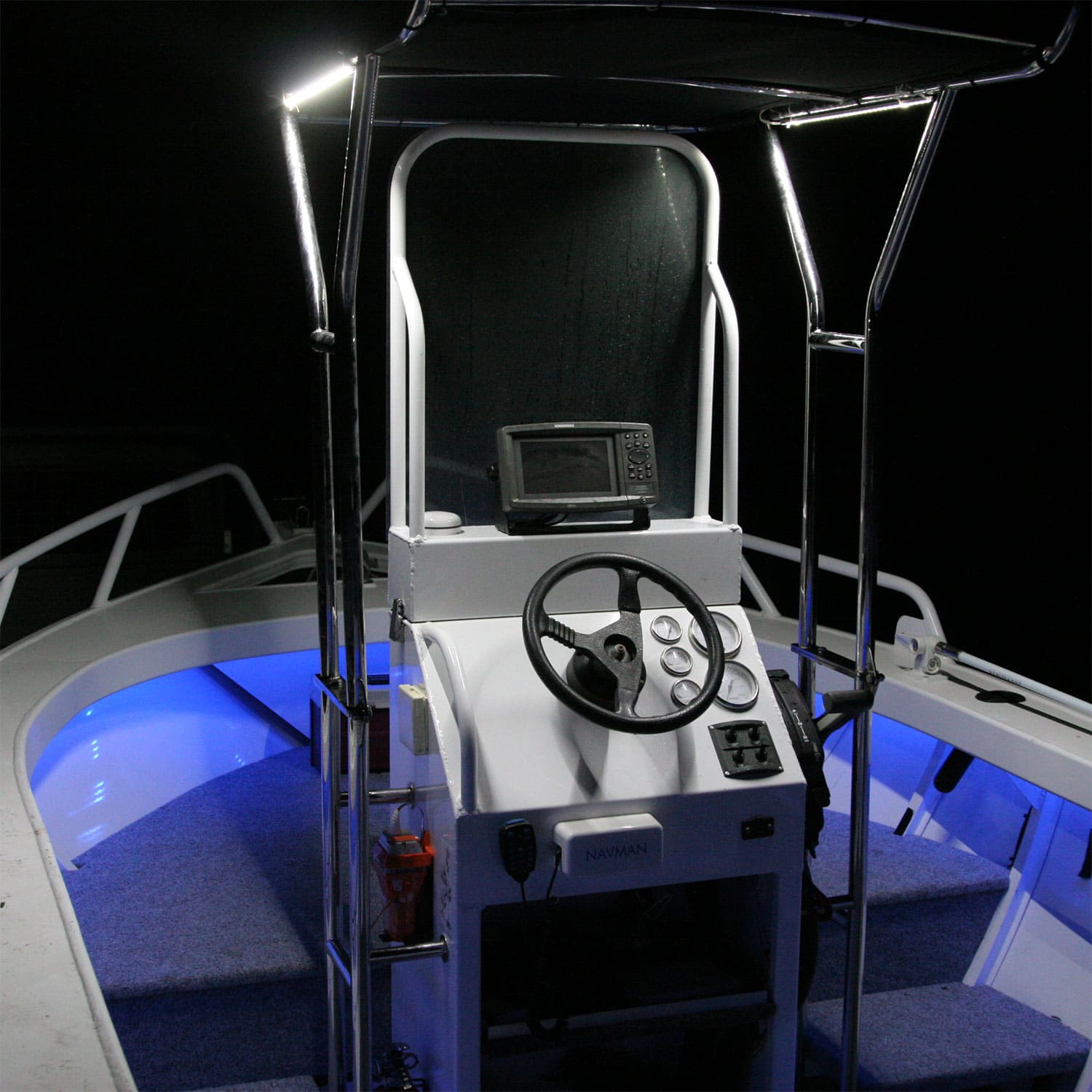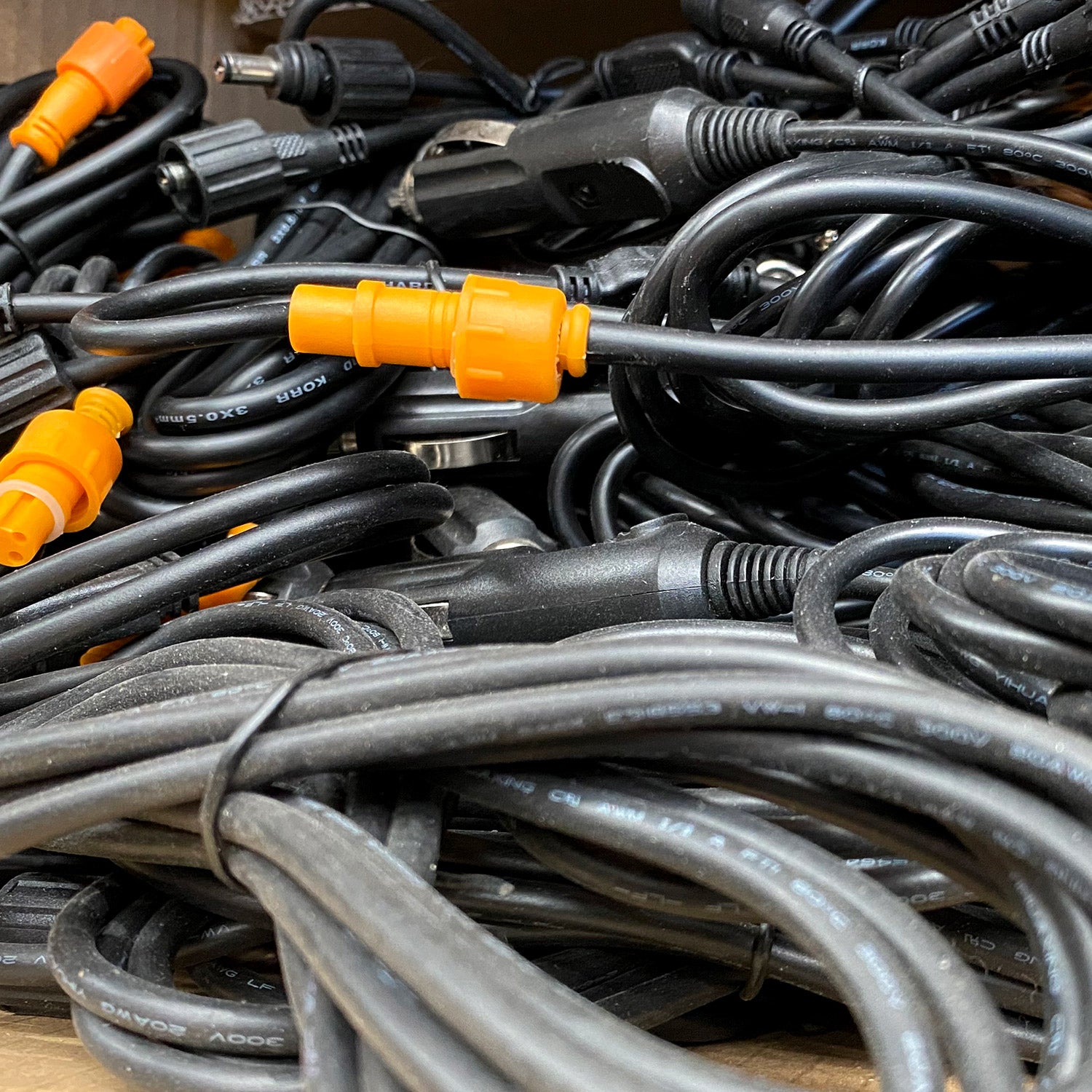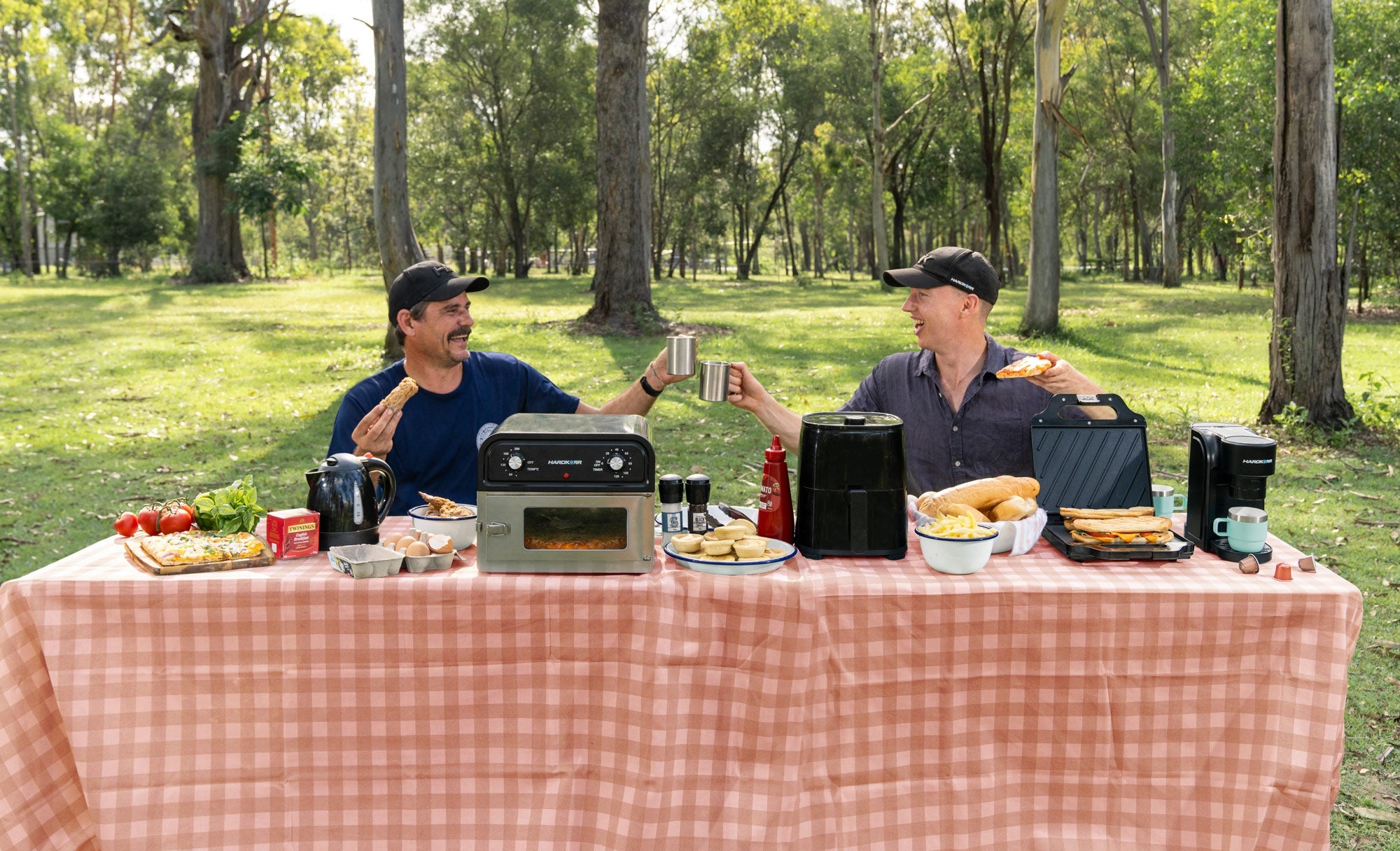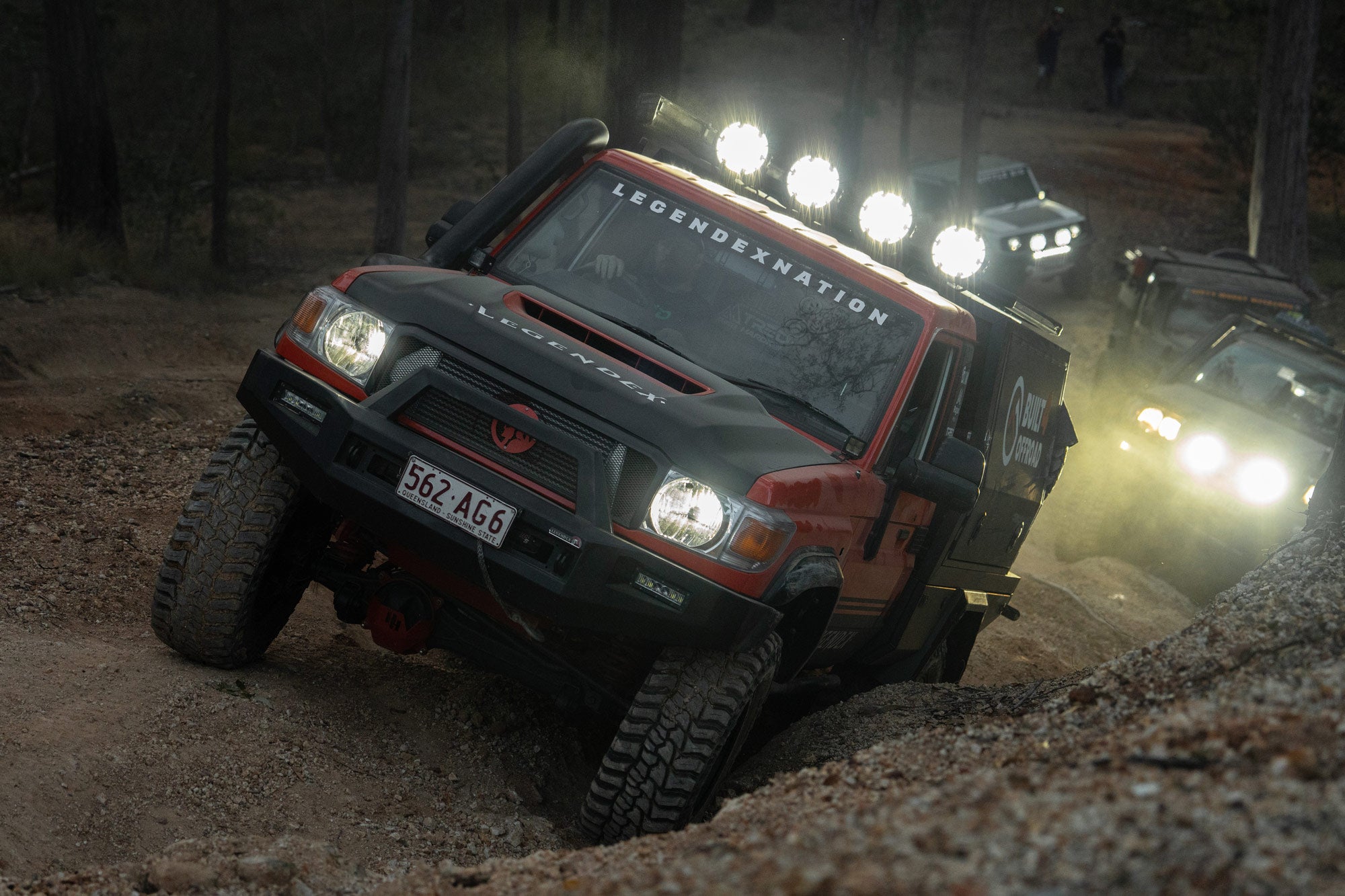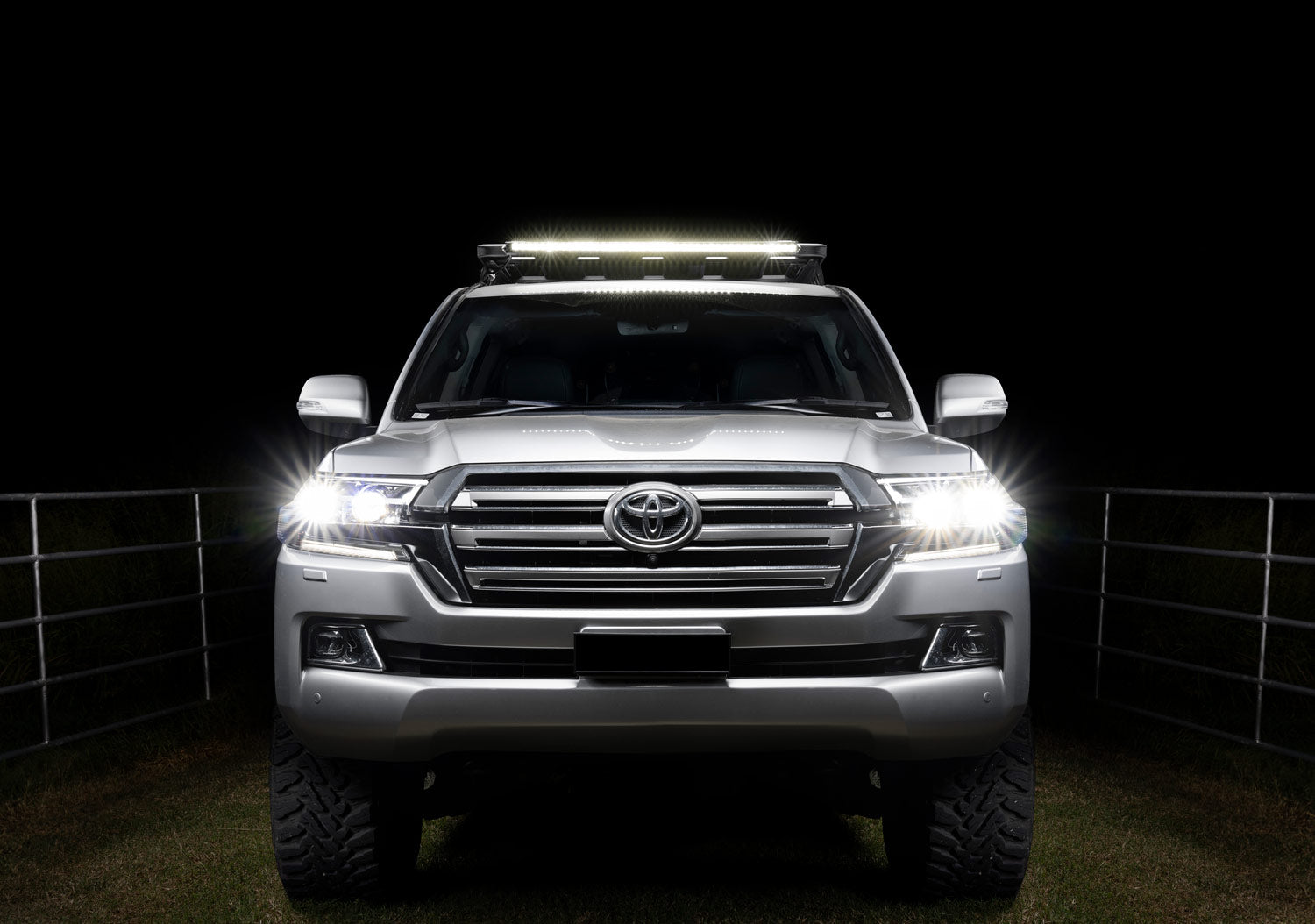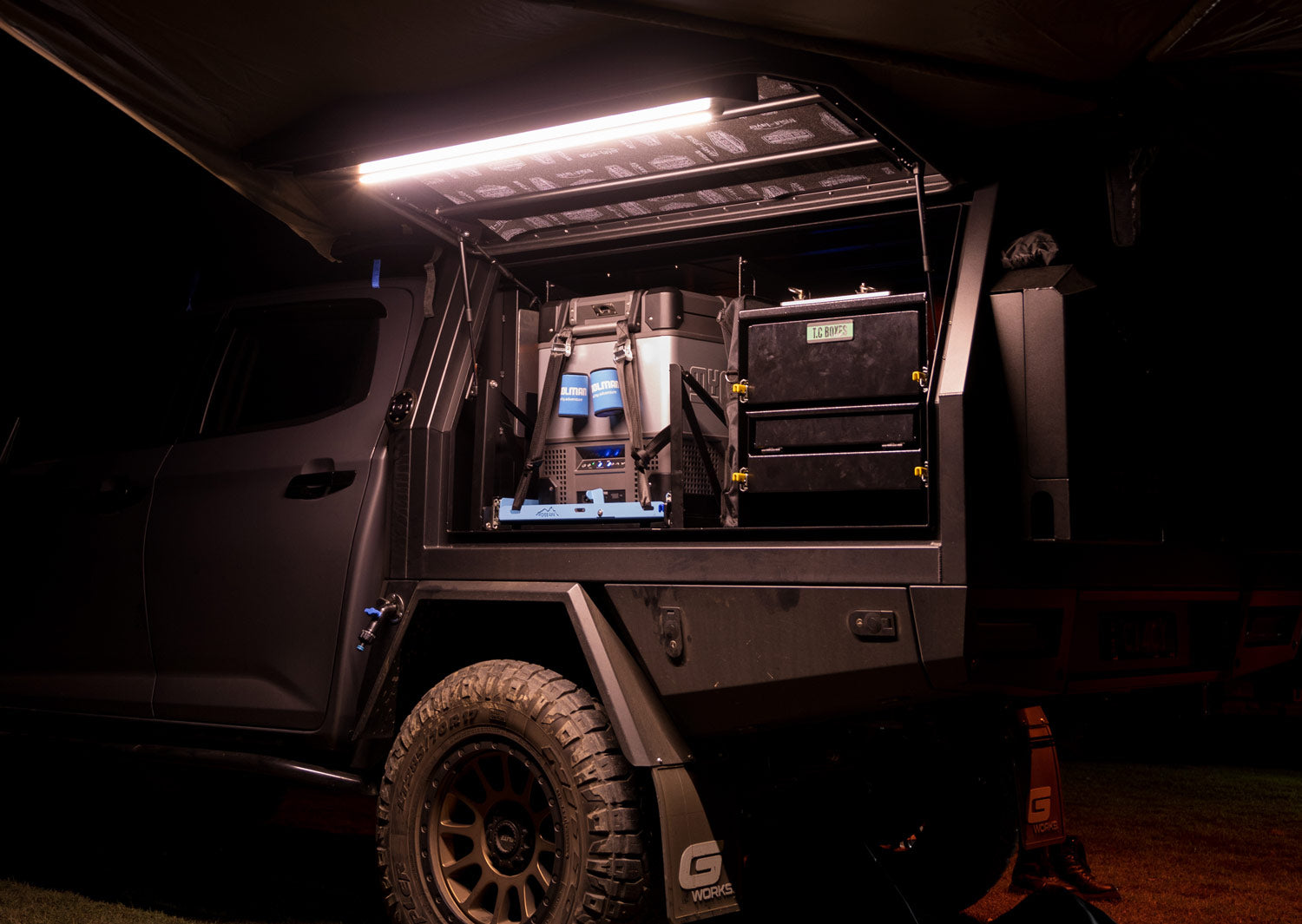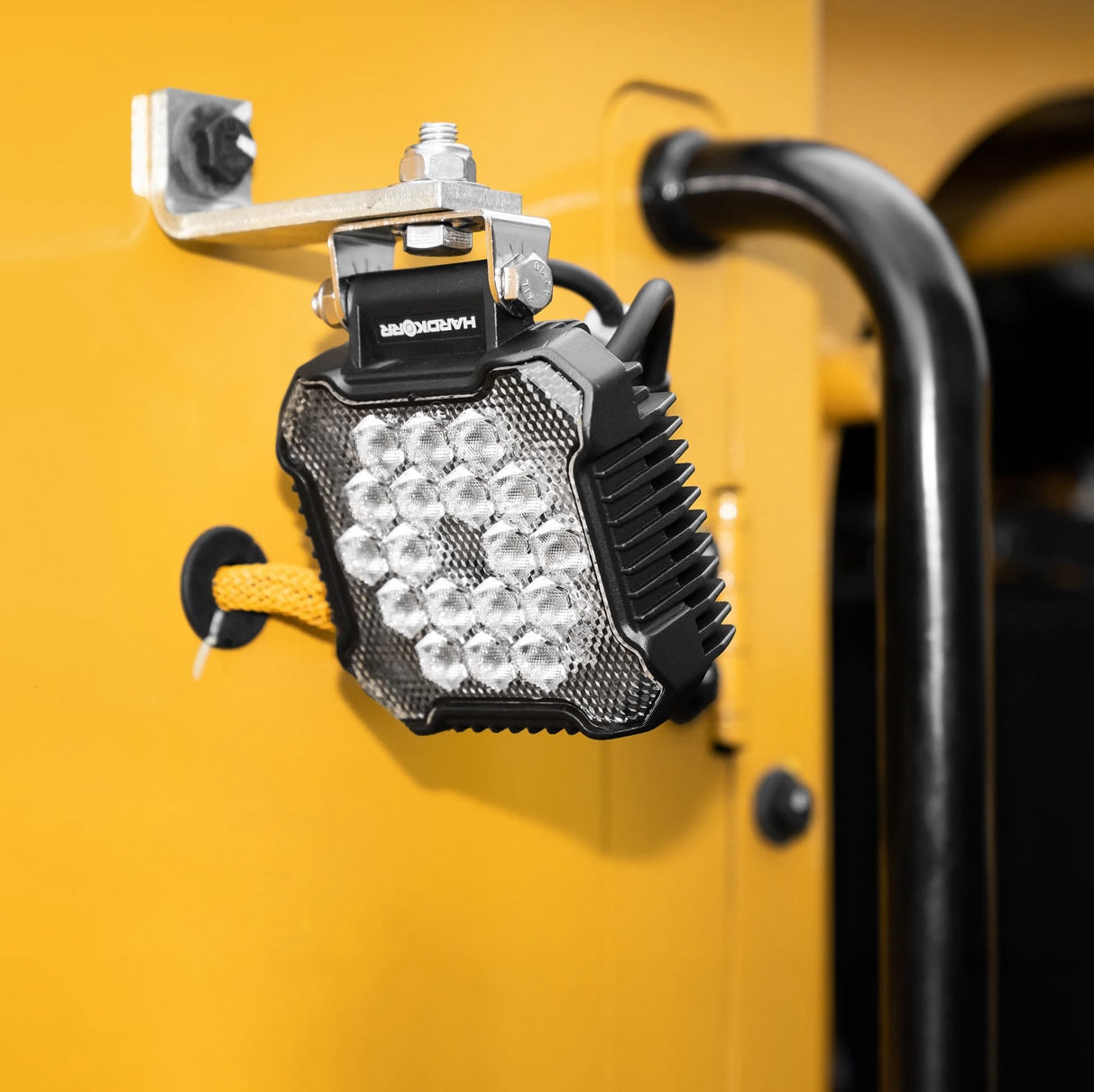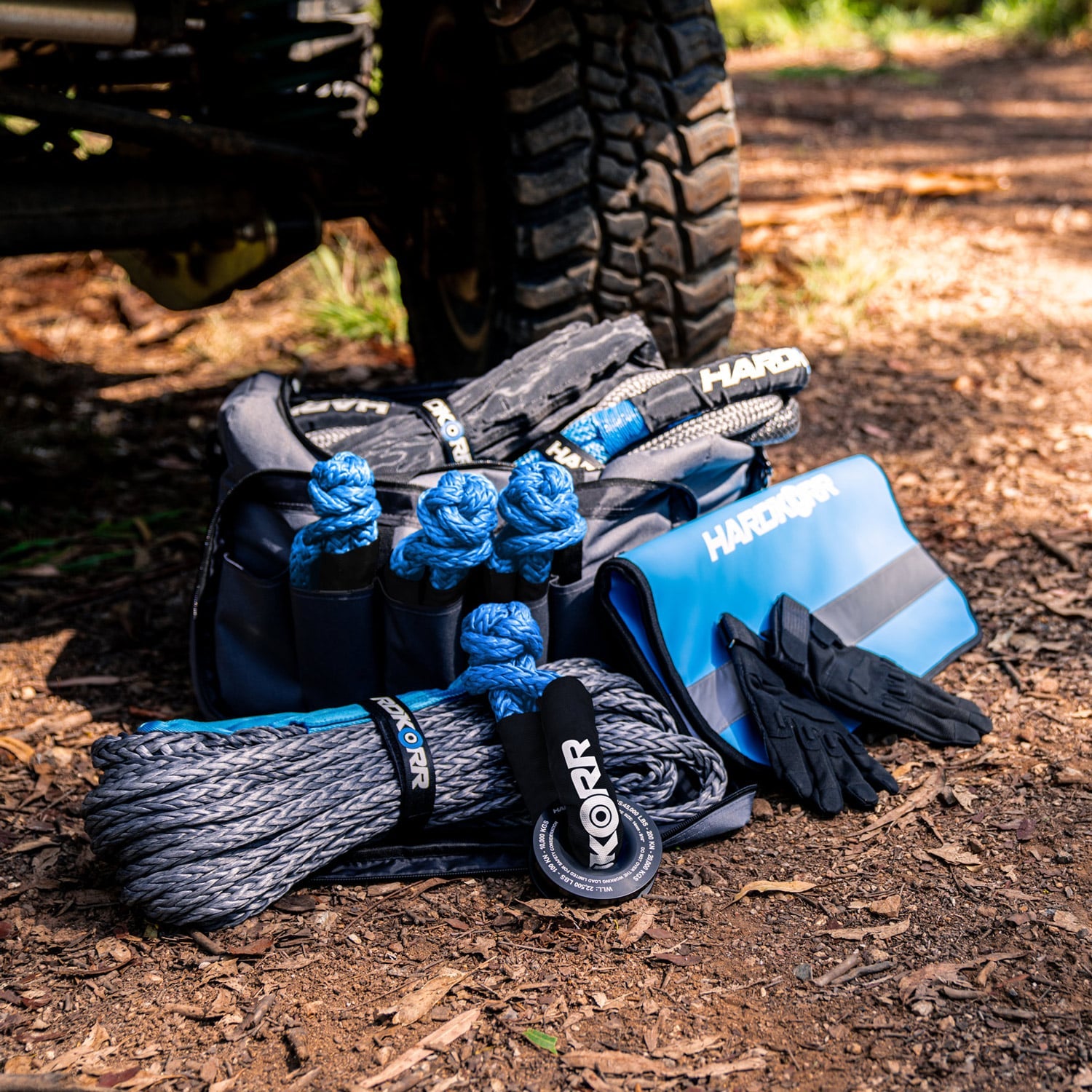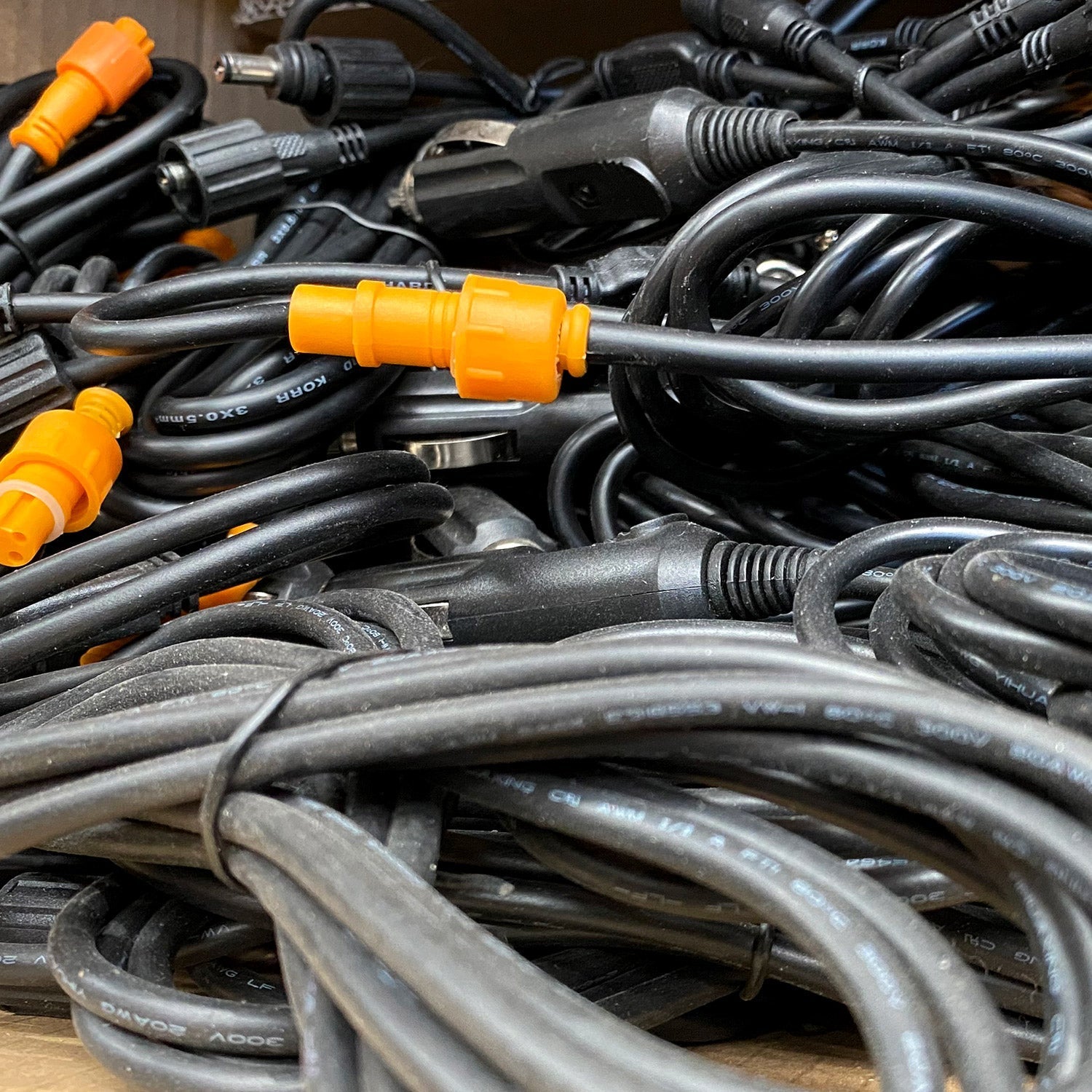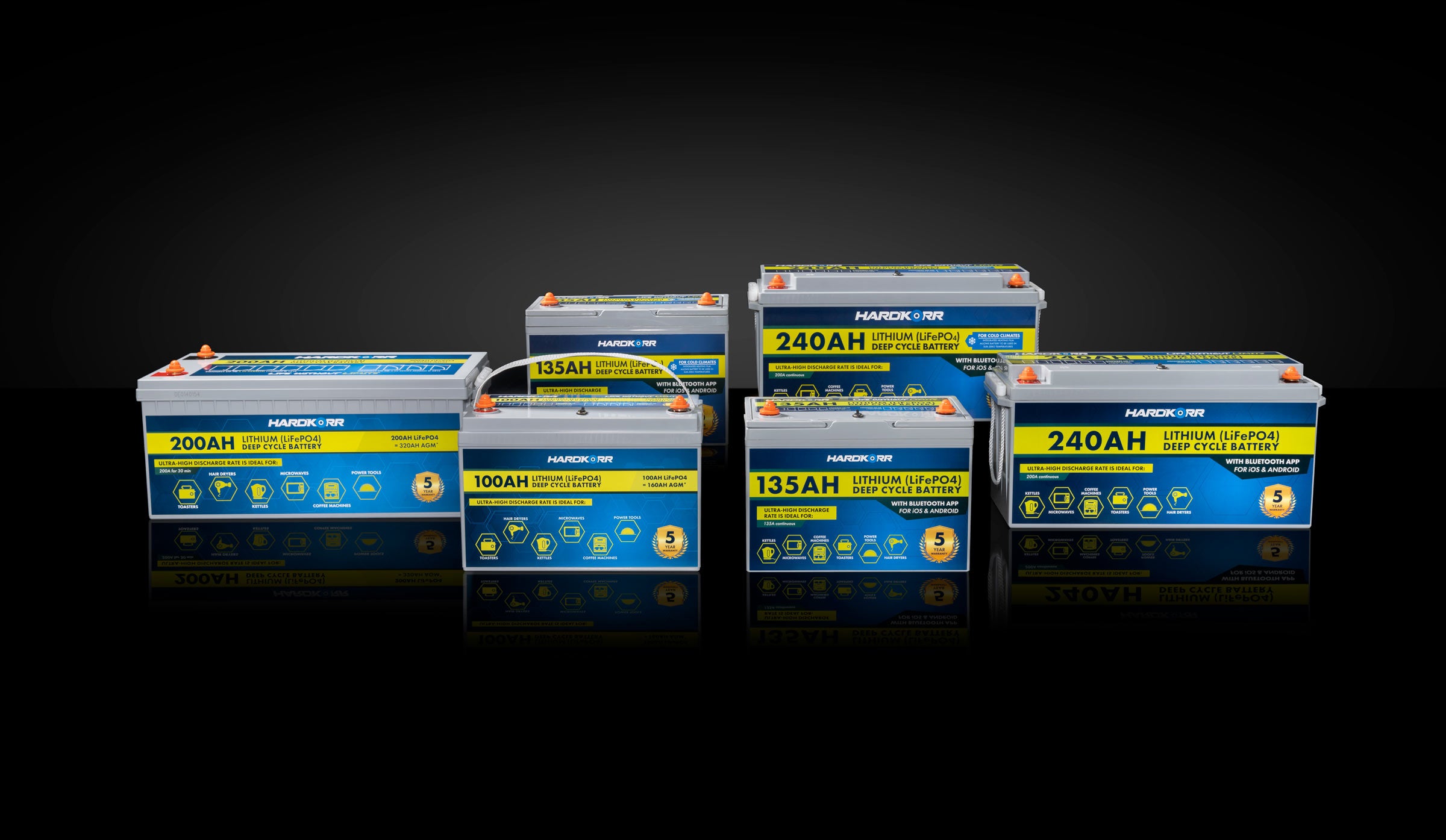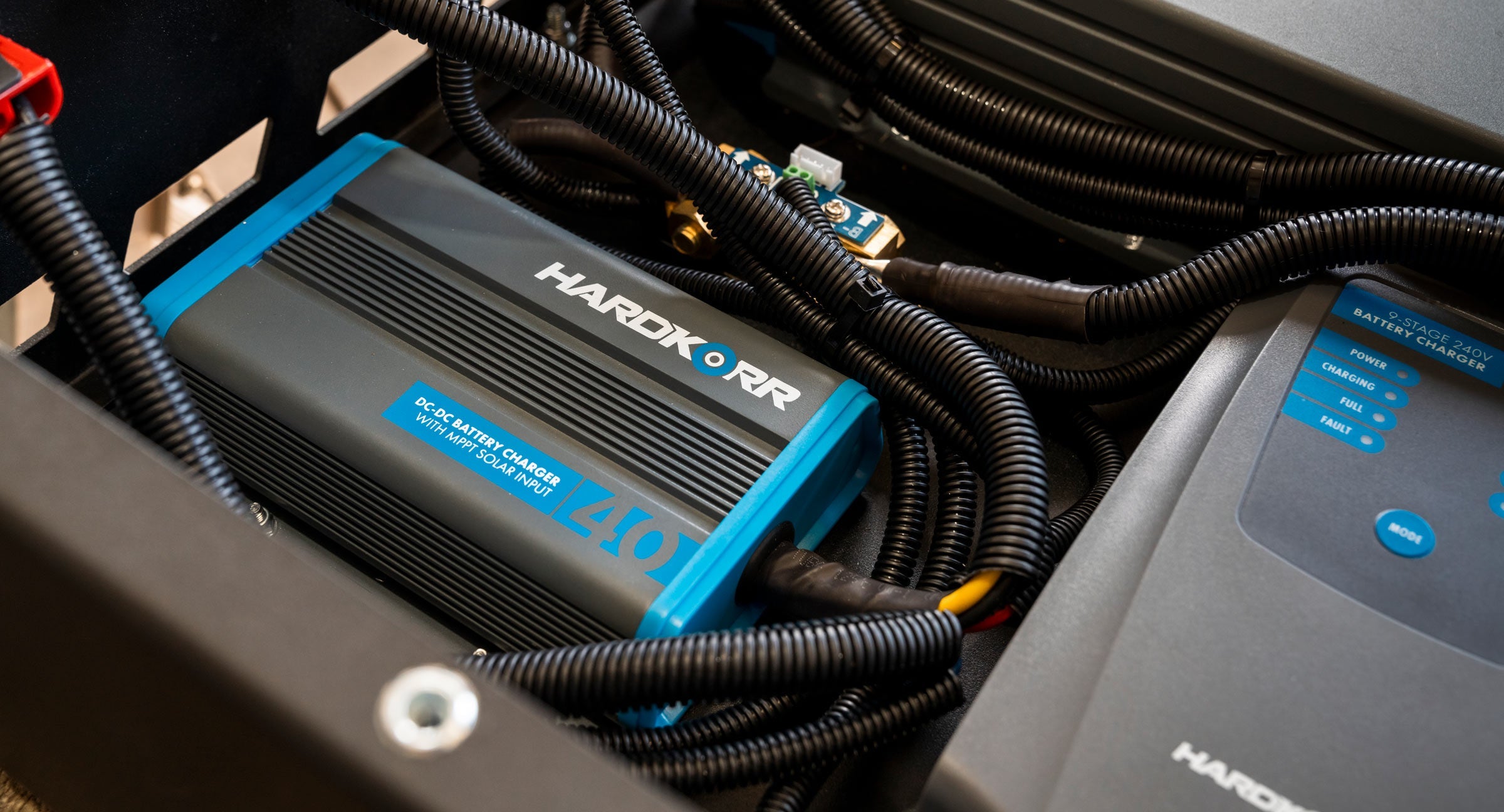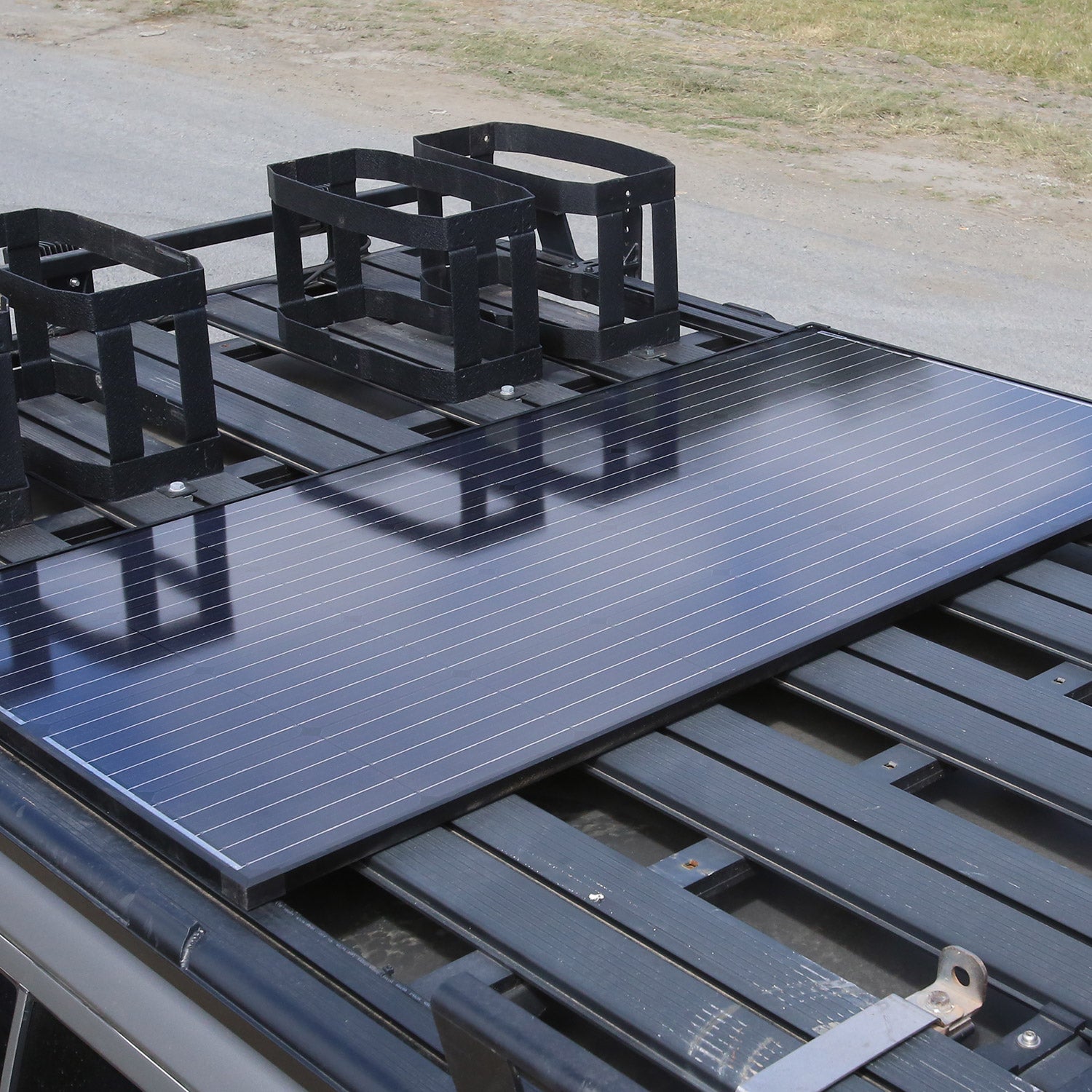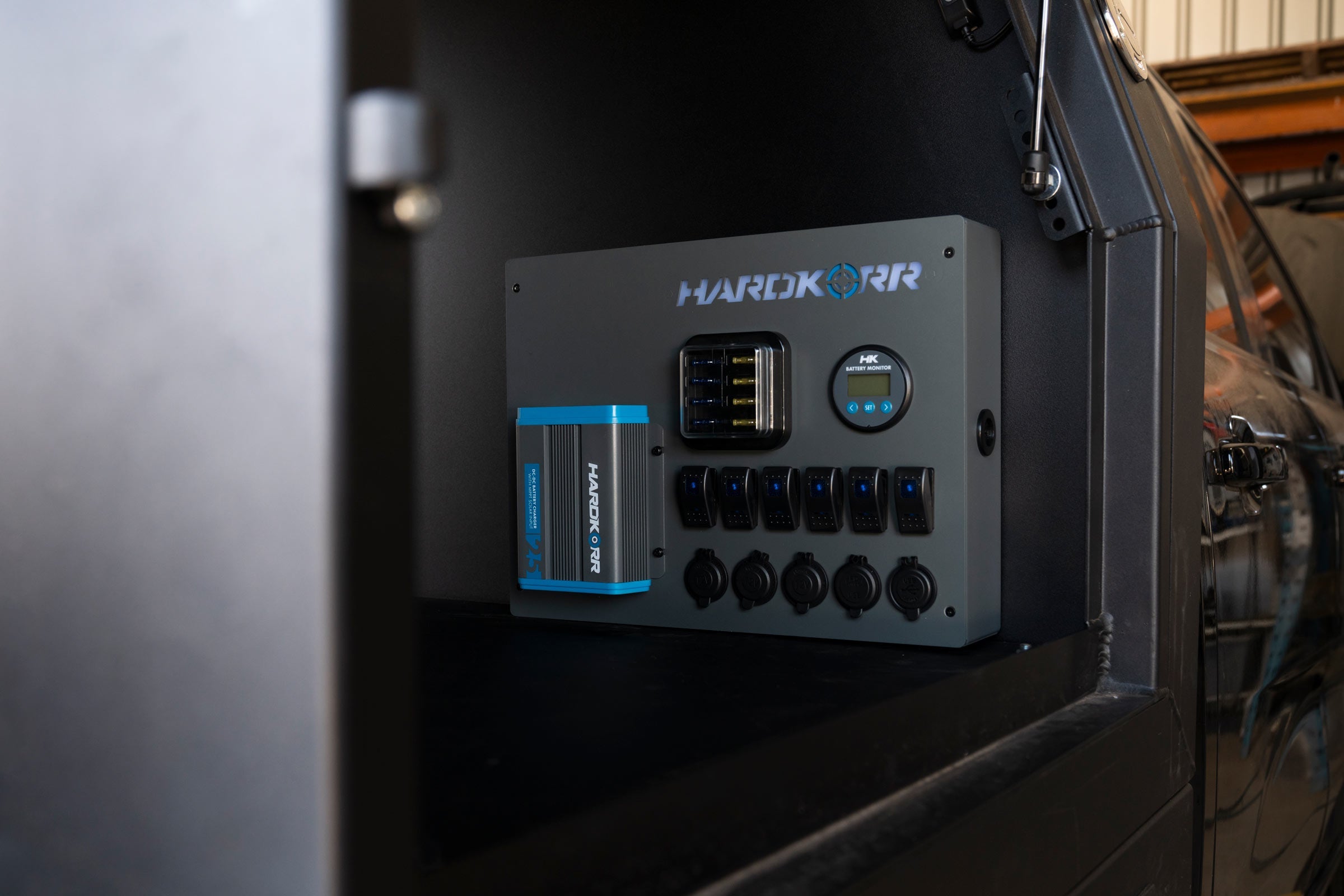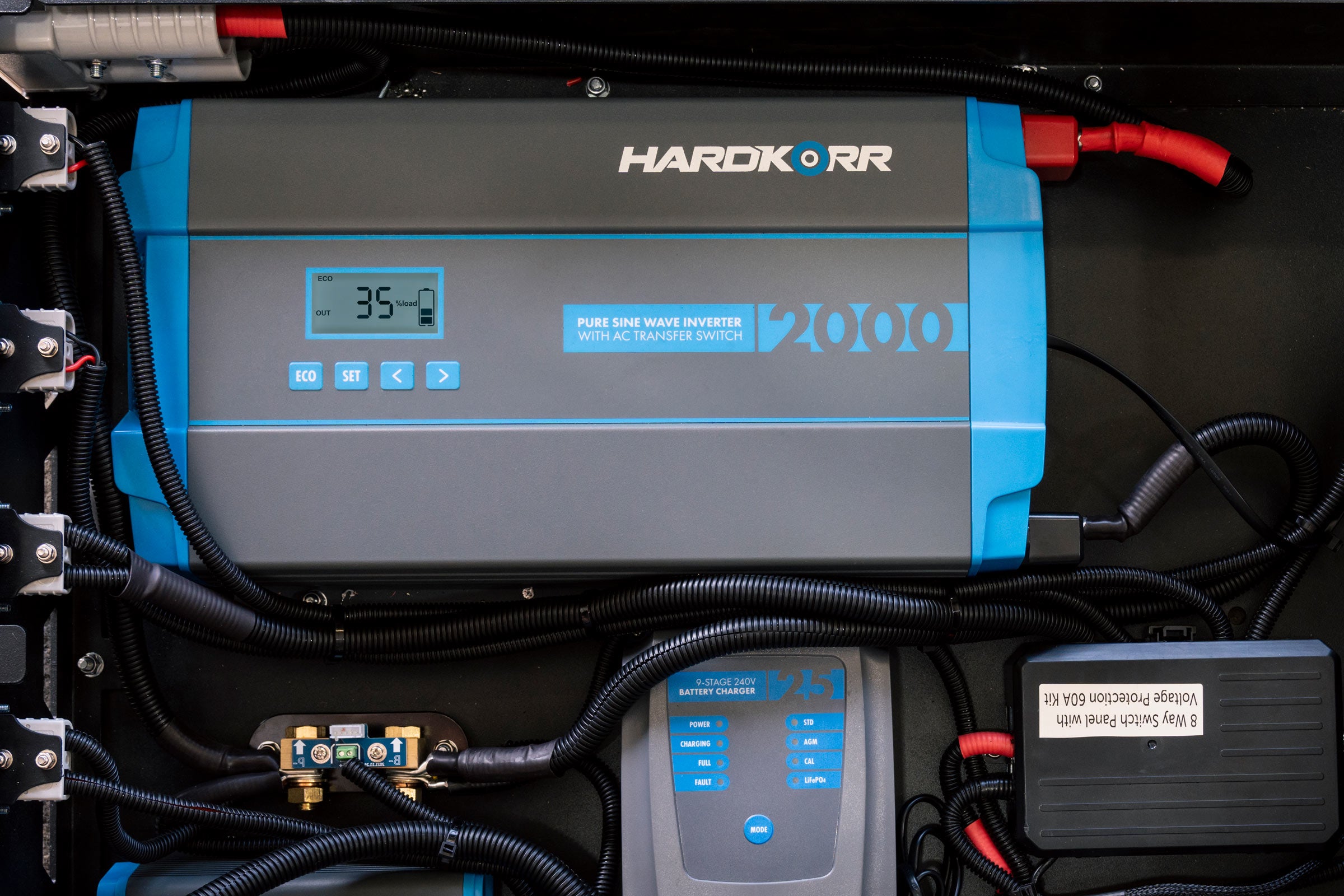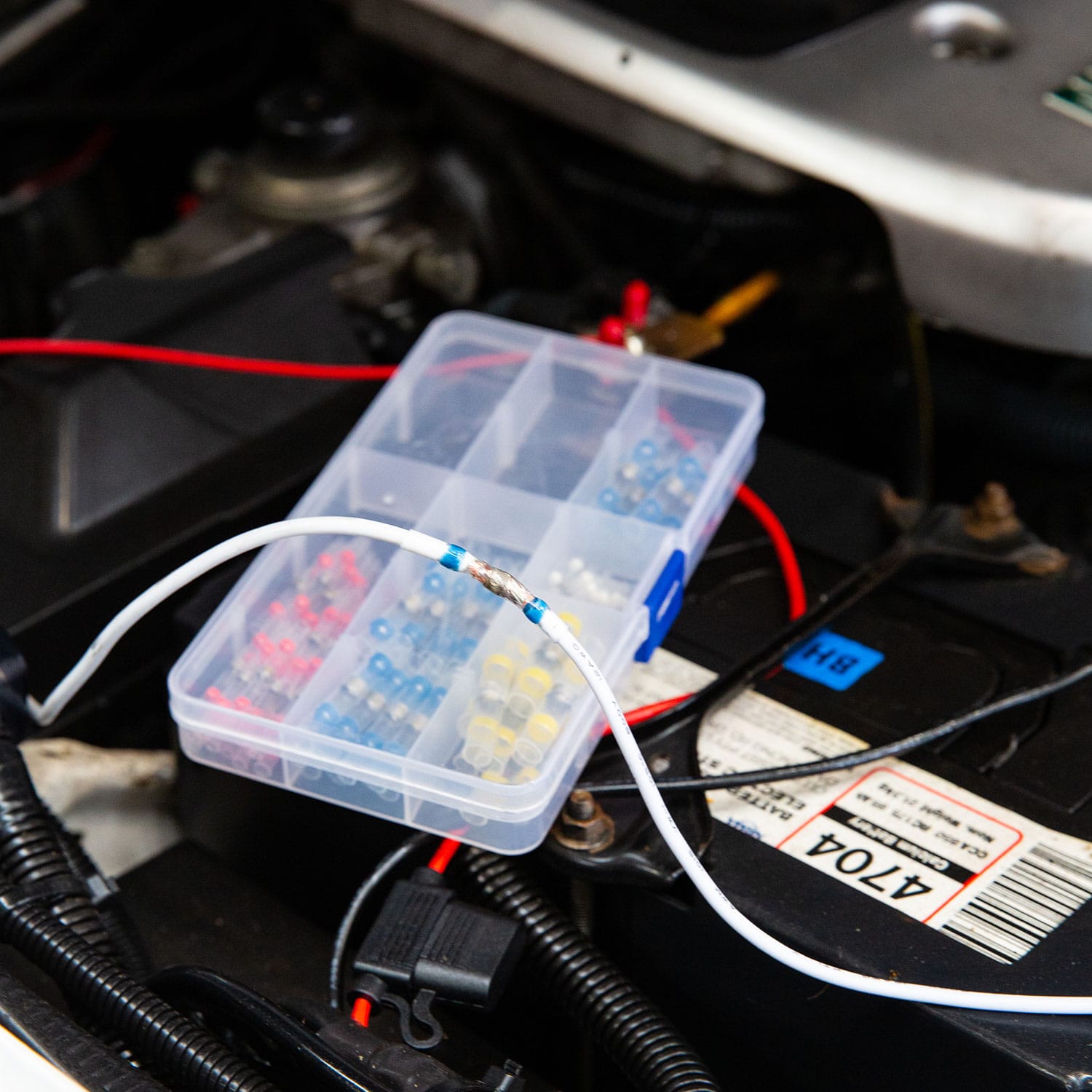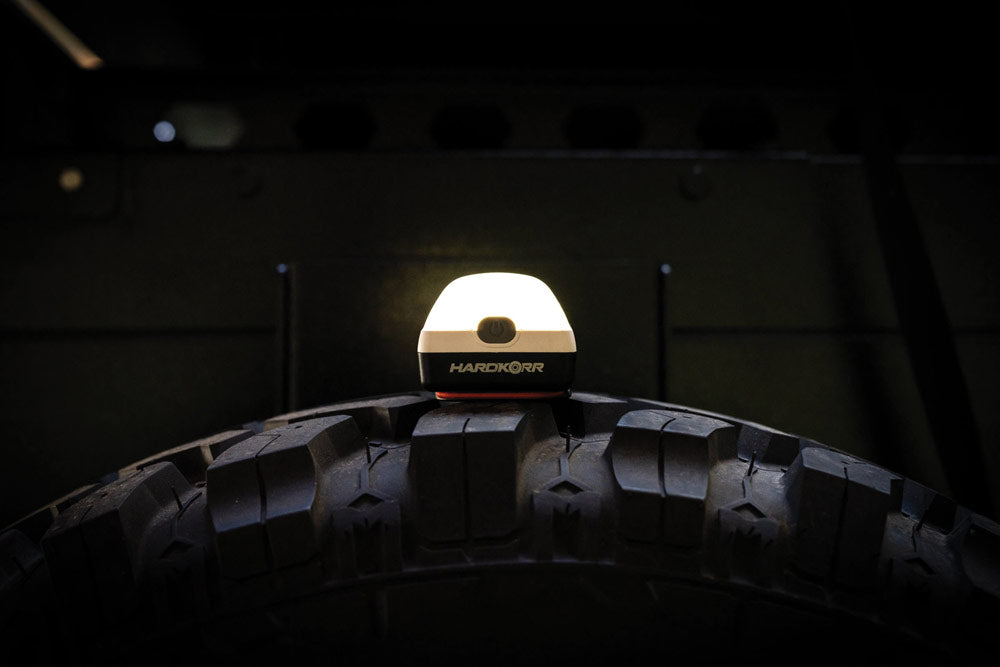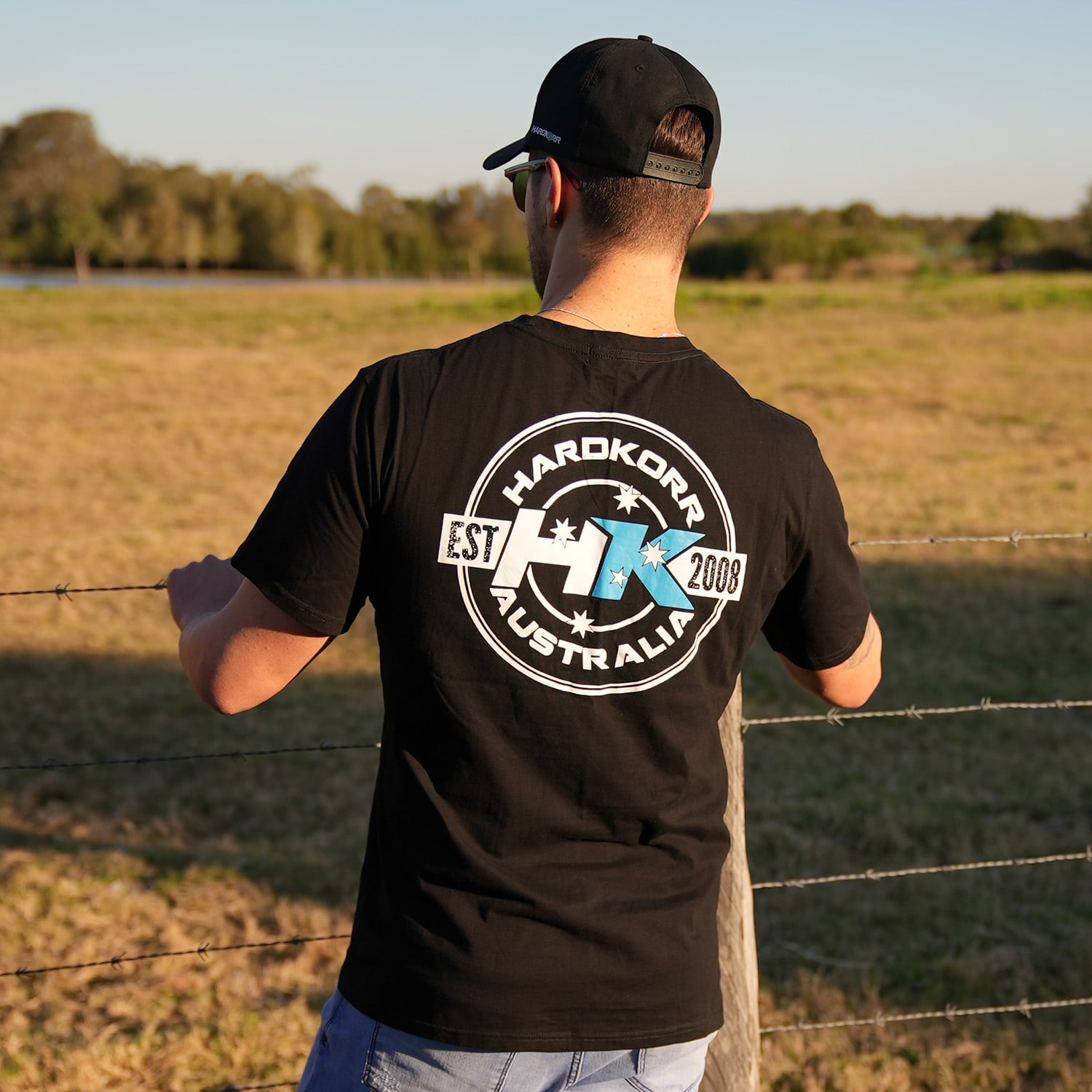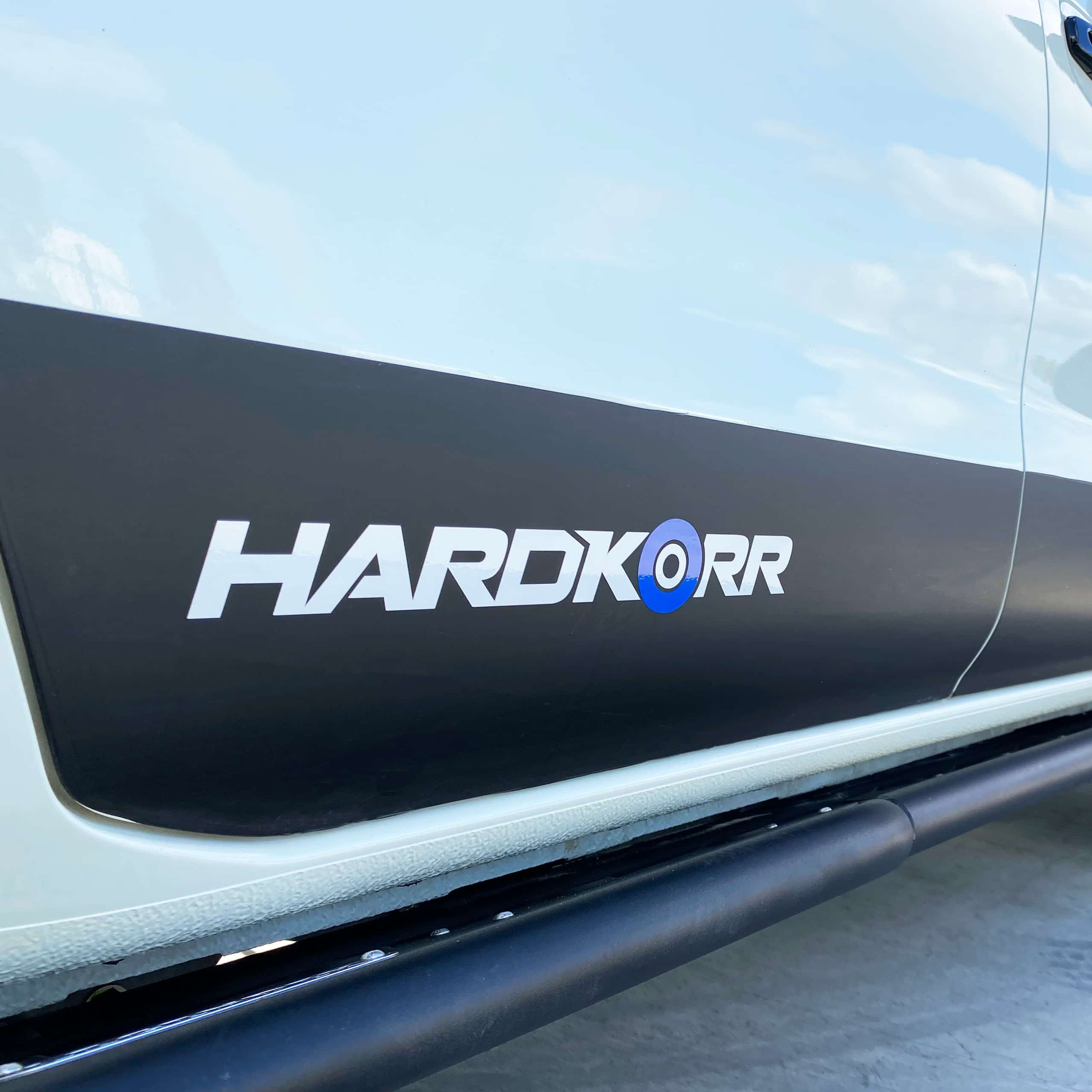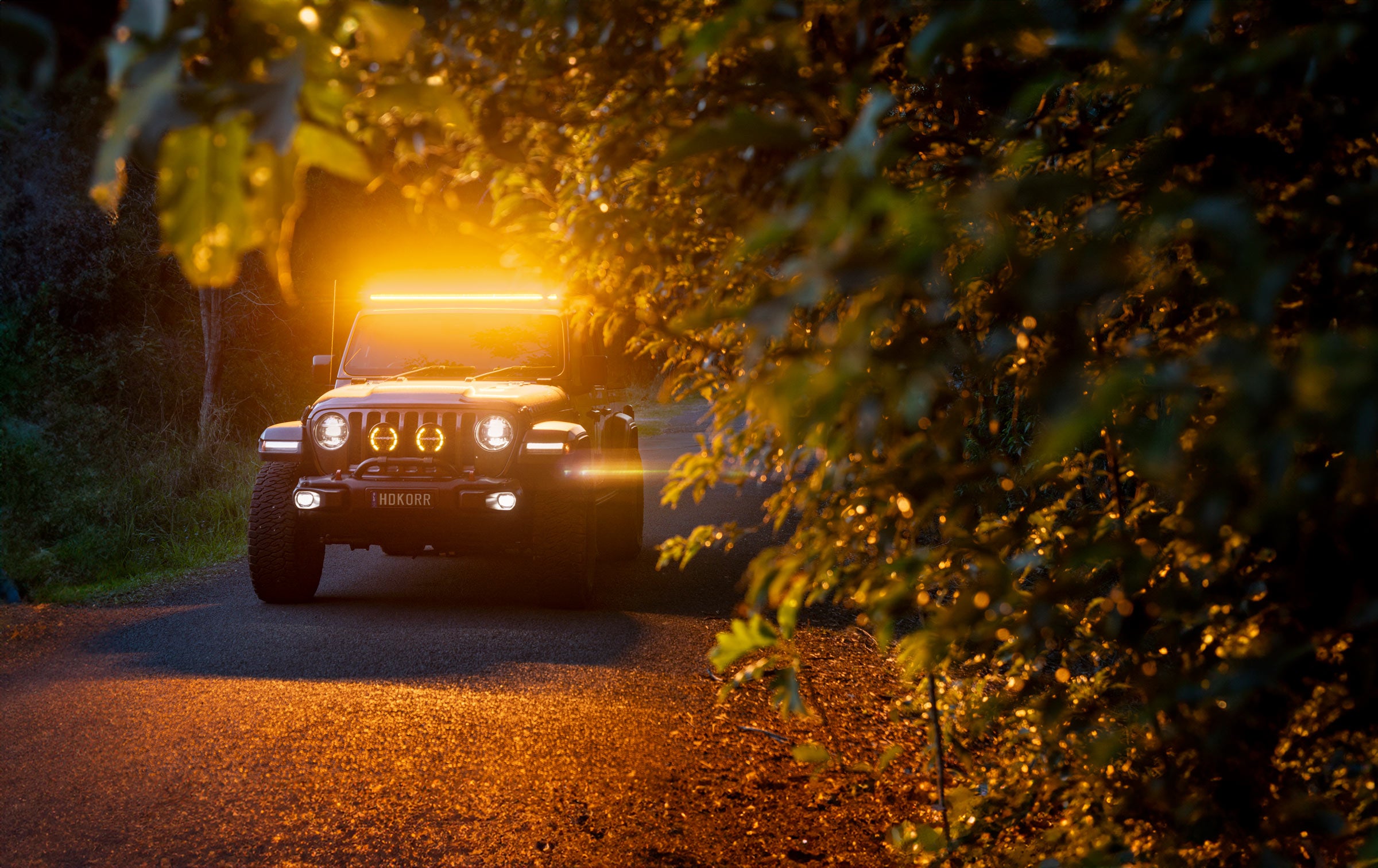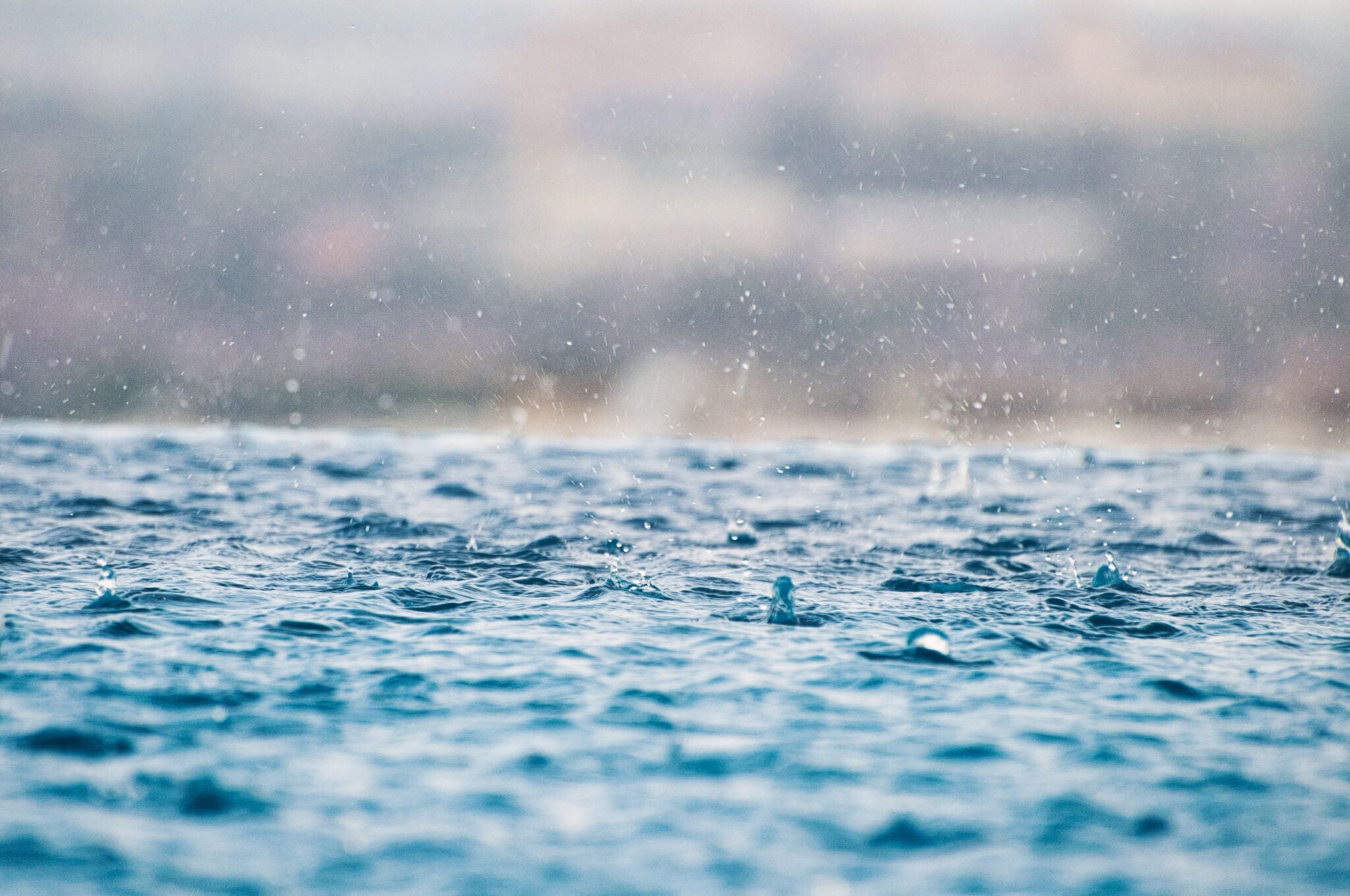IP ratings, or Ingress Protection ratings, are standardised and globally recognised ratings of the degree of protection provided by mechanical casings and electrical enclosures against the entry of solid particles (from body parts to dust) and liquids into the object.
Many products in our industry (automotive lights, camp lighting, headlamps & torches etc) are often used in dirty and wet environments, so it’s important to know that they’re built to handle it!
IP ratings are made up of two numbers. The first indicates the degree of protection against solid particle ingress, and the second is the degree of protection against liquid ingress.
First digit: solid particle ingress protection
The first digit of IP ratings indicates the level of protection against ingress of solid objects and particles.
| Number | Protection Level | Details |
|---|---|---|
| X | N/A | No data available to specify a rating. |
| 0 | None | No protection against solid particle ingress. |
| 1 | > 50mm | Large body parts |
| 2 | > 12.5mm | Small body parts (e.g. finger) or similar-sized objects |
| 3 | > 2.5mm | Tools (e.g. screwdrivers, spanners), thick wires, most larger insects etc |
| 4 | > 1mm | Screws, thin wires, most small insects etc |
| 5 | Dust protected | Some dust can enter, but not enough to interfere with the satisfactory performance of the equipment. |
| 6 | Dust-tight | No dust can enter; complete protection. |
Second digit: liquid ingress protection
The second digit of the IP rating shows the level of protection against the ingress of liquids, particularly water.
| Number | Protection Level | Details |
|---|---|---|
| X | N/A | No data available to specify a rating. |
| 0 | N/A | No protection against liquid ingress. |
| 1 | Dripping water | No harmful effect on the object when mounted upright and subjected to dripping water at 1mm per minute equivalent for 10 minutes |
| 2 | Dripping water (15° angle) | No harmful effect on the object when mounted at 15° angle (4 angles) and subjected to dripping water at 3mm per minute equivalent for 10 min (2.5 min per angle) |
| 3 | Water spray | No harmful effect on the object when hit with water falling as a spray at 50-150kPa pressure from any angle up to 60 ° from vertical. |
| 4 | Water splash | No harmful effect on the object from water splashing the enclosure from any direction. |
| 5 | Water jets | No harmful effect on the object from water projected against the enclosure from any direction by a 6.3mm nozzle at 30kPa from a distance of 3m for at least 3 minutes. |
| 6 | Powerful water jets | No harmful effect on the object from water projected against the enclosure from any direction by a 12.5mm nozzle at 100kPa from a distance of 3m for at least 3 minutes. |
| 6K | Powerful water jets – higher pressure | No harmful effect on the object from water projected against the enclosure from any direction by a 6.3mm nozzle at 1,000kPa from a distance of 3m for at least 3 minutes. |
| 7 | Immersion up to 1m depth | No harmful effect on the object from complete, continuous immersion in water for 30 minutes. The bottom of the object must be 1m below the surface or the top of the object must be 0.15m below the surface, whichever is the deeper. |
| 8 | Immersion up to 3m depth | No harmful effect on the object from complete, continuous immersion in water for 30 minutes. The test depth is specified by the manufacturer, but the bottom of the object is generally expected to be 3m below the surface. |
| 9K | Powerful high-temperature water jets | No harmful effect on the object from water projected against the enclosure from any direction by a 6.3mm nozzle at 8-10MPa from a distance of 0.10-0.15m for at least 2 minutes. The water temperature must be 80°C. |


